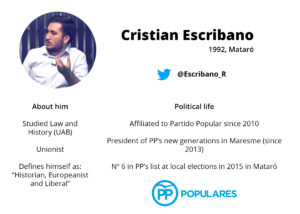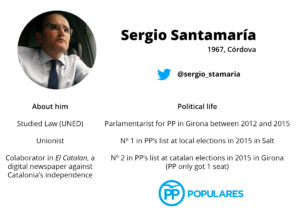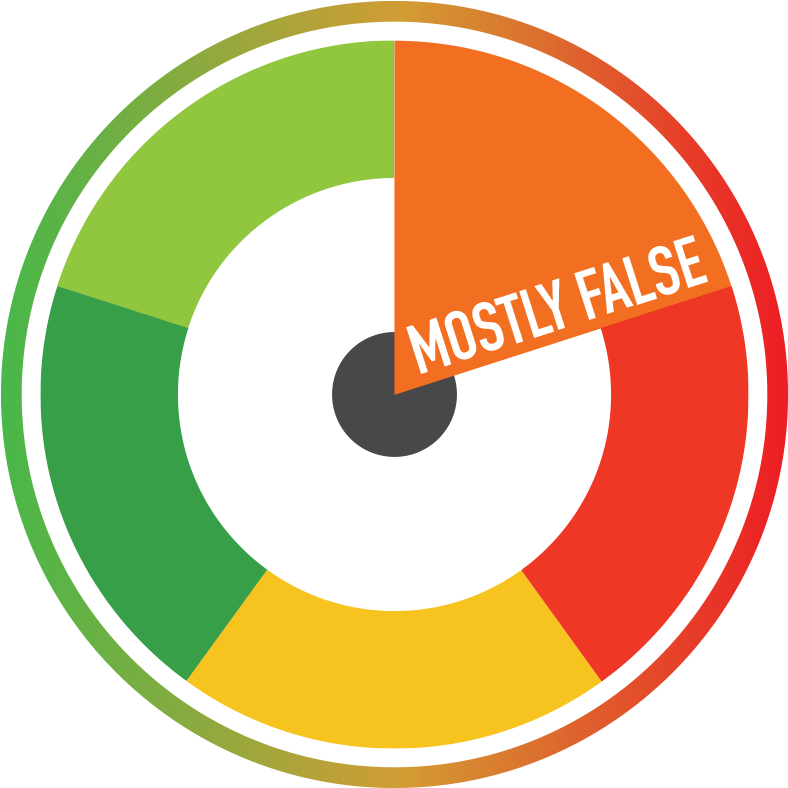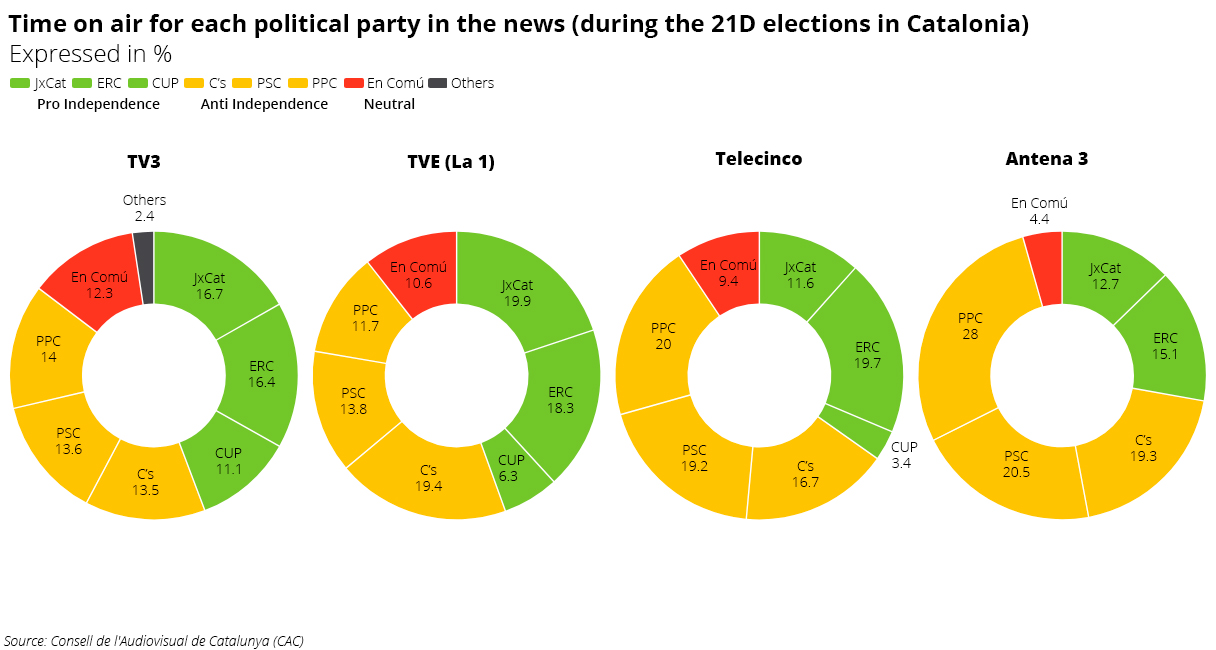In recent years, public media in Spain have been questioned because they are commonly accused of serving particular political tendencies. In the case of the Catalan public broadcasting, the claim arrived to the Committee on Petitions of the European Parliament in January 2019. Two complainants accused the Catalan public television (TV3) and radio station (Catalunya Radio), of “lacking objectivity and pluralism”. Their claims turn out to be mostly false.
 Scrutinizing those claims is central in the run-up to the forthcoming European elections. The petitions made in the European Parliament Commission included certain information that should be thoroughly verified. At the same time, it is important to explain who are the people behind those petitions. The complainants, C.E.R. and Sergio Santamaría, had previously been members of the conservative party Partido Popular (PP) and had even participated in their electoral lists.
Scrutinizing those claims is central in the run-up to the forthcoming European elections. The petitions made in the European Parliament Commission included certain information that should be thoroughly verified. At the same time, it is important to explain who are the people behind those petitions. The complainants, C.E.R. and Sergio Santamaría, had previously been members of the conservative party Partido Popular (PP) and had even participated in their electoral lists.
 Partido Popular (PP) and other non-separatist parties have repeatedly denounced the political bias of TV3 and Catalunya Ràdio. However, data from Center for Media Pluralism and Media Freedom show that the media system in Spain has a high risk on receiving political influence, reporting cases in TV3 but also in the Spanish public broadcasting, TVE, and other Spanish private news outlet like El País. In fact, the News Council of TVE has also registered a petition in the European Parliament reporting political influence in its own channel.
Partido Popular (PP) and other non-separatist parties have repeatedly denounced the political bias of TV3 and Catalunya Ràdio. However, data from Center for Media Pluralism and Media Freedom show that the media system in Spain has a high risk on receiving political influence, reporting cases in TV3 but also in the Spanish public broadcasting, TVE, and other Spanish private news outlet like El País. In fact, the News Council of TVE has also registered a petition in the European Parliament reporting political influence in its own channel.
Why has Partido Popular (PP) set TV3 as an object of their complaint?
Non-separatist parties have focused on denouncing TV3 due its importance in the Catalan territory. TV3 is the broadcasting leader in Catalonia in contrast to all the Spanish news outlets, which turns the Catalan public media into the most significant broadcasting station in the territory. It is also the only public-owned news outlet headquartered in Barcelona.
Petitions registered in the European Parliament Commission
The debate of the two petitions against TV3 took place on 22nd January 2019, with the participation of the petitioners but also of Lluís Caelles, the President of the Professional Commission of TV3, some European MPs and other experts. Both petitions are still open and therefore, verifying the facts can contribute to the investigation. You will find the petitioners’ facts checked hereunder.
“On the October 2nd 2017, there was a broadcast for children. They showed the referendum of October 1st saying that the police who were trying to ensure the rule of law were the ‘baddies’ basically and the people who were trying to cover up the ballot boxes were the ‘goodies’”. FALSE
On the October 2nd, TV3’s news bulletin addressed to children, InfoK, talked about the 1-O referendum, coinciding with the International Day of Non-Violence. The program was focused on the incidents occurred the day before, describing the images of violence as “people quarrelling”, talking about “peace” and “democracy”. They also covered how schools dealt with children’s concerns about adult’s behaviour, who “do not agree with each other”, and the flaws caused by the violence in polling stations and schools. Just in one occasion, InfoK indicated that the Spanish police used excessive force and violence to enter the polling places and injured several people.
“We have the speech made by the ex-President Puigdemont, already dismissed from his position, who was presented on the Catalan public television as if he was still the Catalan President, when he’s not […] Meanwhile, the speech of the Spanish monarch was omitted, as it happens every year”. FALSE
TV3 presented Carles Puigdemont as the Catalan President just one time after being quitted by the Spanish government. It was a video published 24 hours after his removal, which was retrieved from a previous broadcast. On the other hand, TV3 has never omitted the speech of King Felipe VI. Since 2017, the speeches made by the monarch have been relegated to the 24-hour news channel of the media group, Canal 3/24, in order to do not interrupt the evening news bulletin, where they broadcast minutes later its main points. In fact, there is no legal obligation to air his speech. The Basque television (EiTB) does not broadcast it either.
“The distribution in the debates is usually in favour of those panellists who are pro-independence against those who are defending the rule of law”. FALSE
TV3 has been denounced for its lack of plurality. Despite this, data from the Catalan Audiovisual Council prove that TV3 is one of the most plural broadcasters in Spain. Here you can see the time percentage dedicated by TV3 to each political party during the last elections in Catalonia, in contrast to La1, Telecinco and Antena 3.
“We also have the warnings that these professionals have received from neutral organisms such as Junta Electoral Central (JEC), integrated by magistrates that supervise and control the functioning and legality of TV3”. FALSE
The JEC is an organism composed by eight judges of the Supreme Court and five law professors proposed by the political parties. So is not as “neutral” as the petitioners said. At the end of 2017 and before the Catalan elections of December 21st, this organism prohibited TV3 from using expressions such as “imprisoned councillors” to speak of the government dismissed by the application of article 155 of the Spanish constitution following the referendum on October 1.
“There have been pressures on magistrates of the supreme court. Judge Pablo Llarena himself and his family have seen how television programs published private data of themselves that have materialized in violent actions”. FALSE
“Tot es Mou” is the program where the 26th March this data about Llarena was released. The day before this program, Llarena’s house in the Pyrenees had been painted yellow by the youth organisation Arran. In November last year, Arran painted Llarena’s house in Sant Cugat, but it cannot be said that these actions were triggered by the information about him shown in TV3, because the Arran’s campaign against the judge had started before this personal data was published. For this reason, the CAC exculpated TV3 for this accusation.
“On a TV3 program, the president of Spain was compared with Hitler. What public television of Europe would Nazism be banalized? On what public television would you compare a democratic leader to the biggest genocide in Europe? That has happened on TV3!”. FALSE
“Polonia” is not a news programme, but a comedy program characterized by caricaturing the political reality. This caricature of former President Rajoy appeared on November 12th, 2012, after the 9N vote, which the Spanish government argued had not been carried out and was unconstitutional. The gag recreated the famous Downfall’s Bunker scene, a recurring scene in parodies, also used by the BBC in a parody of Tony Blair.
In conclusion, the Spanish media framework must be taken into consideration when it comes to analysing the editorial independence of public media since it is very different from other models such as the British one. In Spain, public media depend economically on institutions, which also makes them less independent when it comes to developing a completely autonomous editorial line. However, and beyond this assessment, we must differentiate between editorial line and informative content. Bearing in mind the aforementioned checks, we can state the claims that Catalan public media lack objectivity and pluralism are mostly false.
Read more about how we analysed the speech of Cristian Escribano and Sergio Santamaría at the Committee on Petitions of the European Parliament in our Behind the Facts blogpost.
RESEARCH | ARTICLE © Irene Riart, Silvia Vega, Maria Asmarat and Eloi Puigferrer, Universitat Pompeu Fabra, Barcelona, ES







